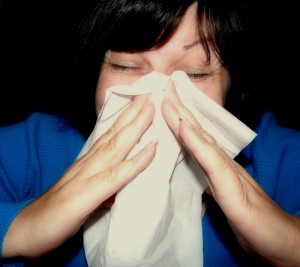
A serious respiratory illness has cropped up in the Midwest and is spreading throughout the nation.
The EV-D68 virus, stronger and more severe than what the fall season normally holds, is causing confusion among the nation’s doctors due to its quick spread. What was hopefully going to be contained to just two states has now spread to about 12 states, ranging from Colorado to North Carolina.
“We’re in a stage where it’s difficult to say just how big this is, how long it will go on for, and how widespread it will be,” said surgeon general Anne Schuchat in a recent press brief.
On its website, the Center for Disease Control (CDC) reports that the virus is not frequently identified. It is less studied, so the way it spreads is not as well understood as other viruses. Early symptoms are difficult to distinguish from the common cold, and most hospital-admitted cases are then tested for the virus. Numerous states have requested assistance from the CDC as they strive to contain the outbreak, including Utah’s neighbor, Colorado.
“It is definitely going to make its way here (to Utah),” said Dr. Jason Church of the Ogden Clinic in a recent interview with KTVX ABC 4.
EV-D68 has been reported to cause mild to severe respiratory illness (coughing, sneezing, etc.) and has caused an unusually large number of patients to be hospitalized, particularly children. Although this does concern health officials, no deaths have been reported, and it is unlikely that any case will result in death.
“All of these folks are going to get better,” said William Schaffner, head of the Department of Preventive Medicine at Vanderbilt University, in an interview with CNN. “Some of them have more severe illness, such as these children who have developed asthma and are hospitalized. But they should all get better.”
Currently, no vaccination exists for preventing EV-D68 infections. Doctors and the CDC stress that citizens wash their hands often and avoid contact with people who are sick. More information on steps to take can be found at cdc.gov/non-polio-enterovirus.




